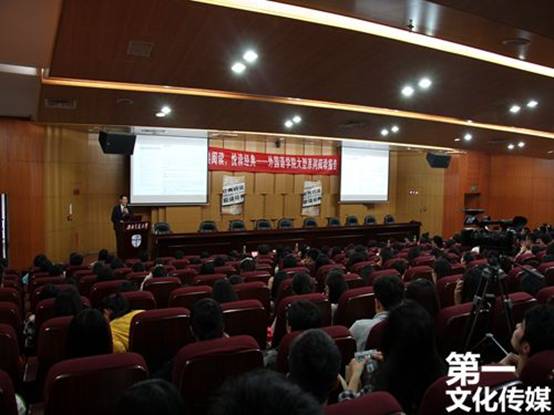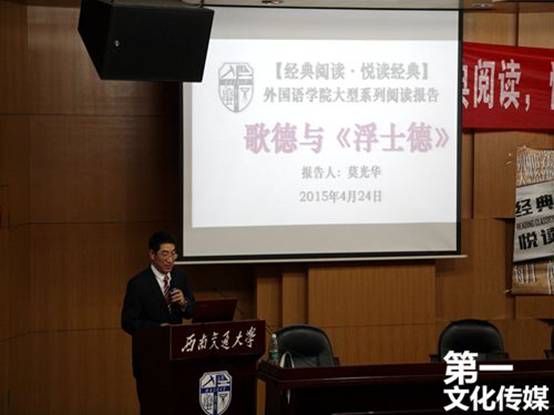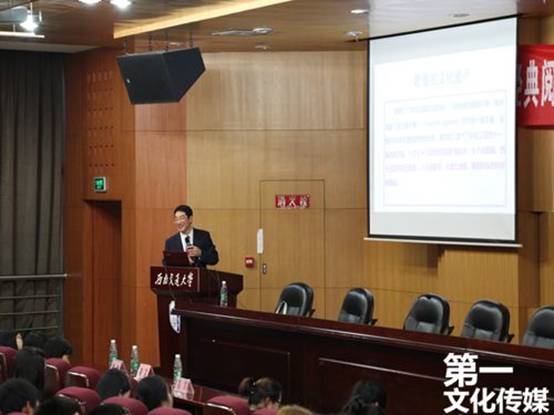As the second lecture of Reading Classics Series, “Goethe and his Faust” took the audience to the ancient Europe with their tour guide Prof. Mo Guanghua, a well-established scholar in German literature and culture, specifically, in Goethe & his works. Prof. Mo has been a university teacher for more than 20 years, with a number of academic papers, translated works and a monograph published.

At the very beginning, Prof. Mo successfully reminded the audience of the importance of reading by combining the three Chinese characters--du (to read), shu (book), hao (good)—into a few expressions: du shu hao (reading books is good), du hao shu (to read good books), hao du shu (to be good at reading books), etc.
Then Prof. Mo raised two questions: Are we able to talk about Goethe? If we can, how do we view Goethe? To answer the questions, Prof. Mo cited from Goethe himself to the effect that we won’t discuss Shakespeare because no discussion is adequate, and the stage is too narrow and shallow to hold his great soul. Prof. Mo said he wouldn’t be able to analyze and interpret Goethe in a comprehensive way, but the audience’ interest in either Goethe or his Faust would be a welcome reward for his speech.

Goethe is one of the most versatile talents so far in the world, a universally recognized poet, playwright, novelist, thinker, naturalist, politician as well as a great Cosmopolitan and humanist. To the common German people, Goethe ranked the sixth in a national survey on the greatest Germans due to his contributions and influence. He was the only one litterateur in the list. To the rest of the world, Goethe stands as the most brilliant symbol of German culture. Goethe went to Weimar in 1775 upon invitation, with light luggage including a few manuscripts like fragments of Goethe. 50 years later in 1832, Goethe, upon his death, left behind him more than 341 manuscripts including more than 2500 pomes, a large number of dramas, novels, prose, works of literature and art theory, over 20,000 letters, as well as diaries, conversations, daily records and reading notes. Madame de Stael justifiably viewed Goethe as “the only embodiment of Germanism in every positive aspect”.

After knowing who Goethe is, the audience were further impressed by the early study on Goethe by Chinese scholars such as Guo Moruo, Wang Guowei--a master of Chinese culture and Ma Junwu--once the secretary of Dr. Sun Yat-sen and the first Chinese with a German Dr. Degree in engineering. At last, a movie clip of Faust released in 1926 highlighted the lecture, with its impassioned music and excellent performance.
Reading classics will cultivate the college students in creative thinking as well as humanity spirit, personality and aesthetic appreciation. Professor Mo encouraged the students to read more good books and more importantly, to read into each good book. The lecture ended in the warm applause, leaving unimaginable room for imagination.